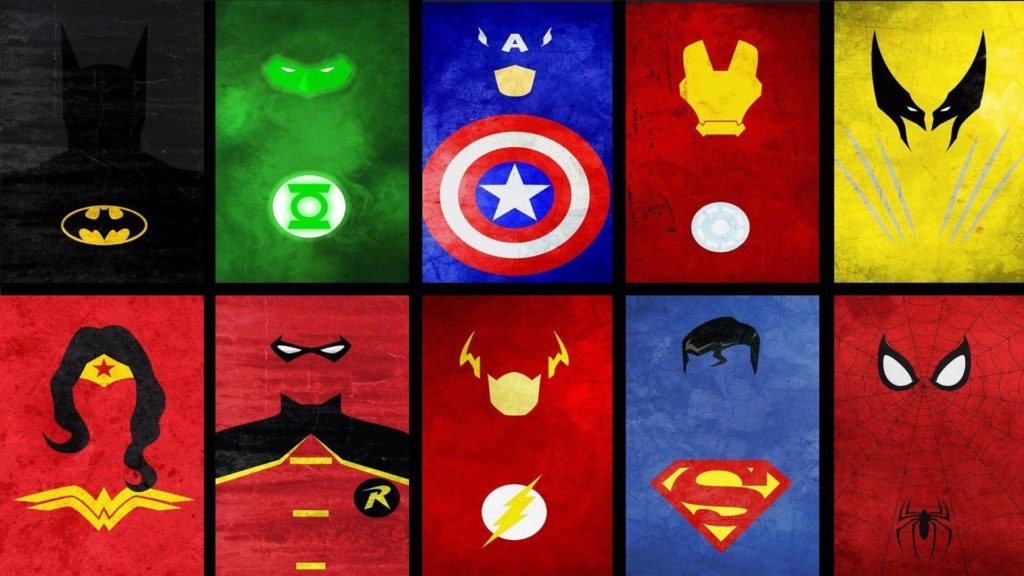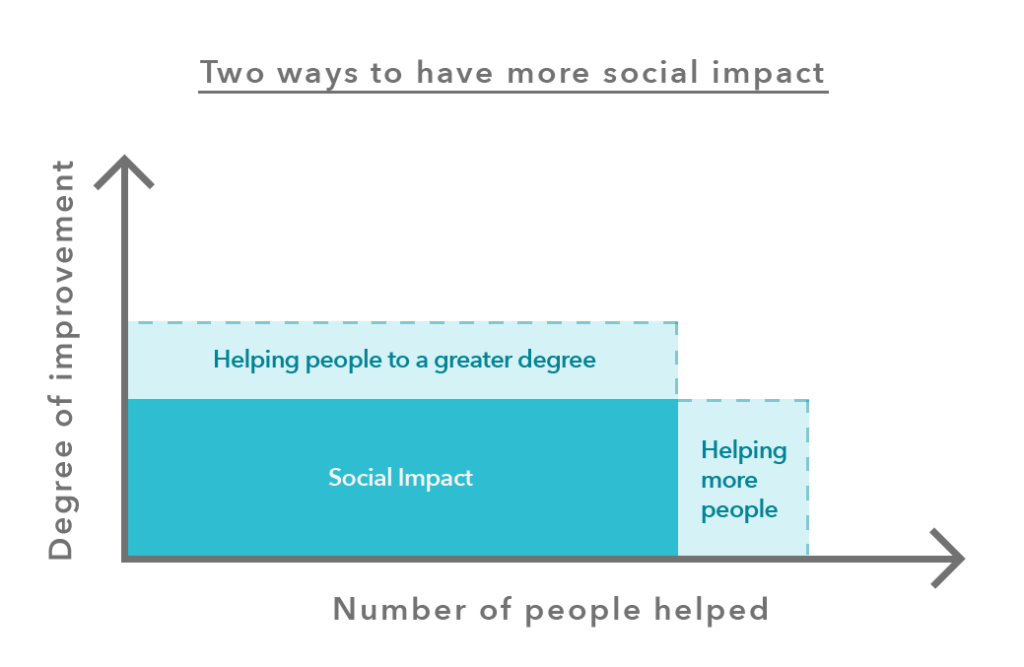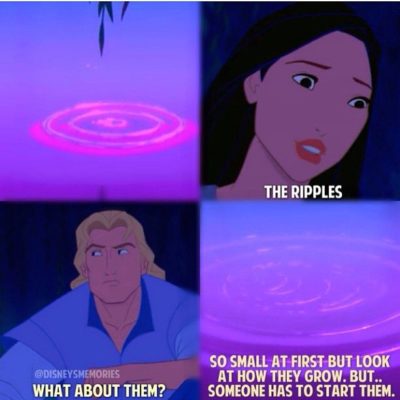
No matter how committed we are to changing the world, we can’t make progress unless we believe that we have the power to do so. You don’t need to be famous or a trailblazer to make a difference. There are many ways to contribute, no matter what profession you’re in. You’ll find inspiration in these stories of people accomplishing their missions to create positive shifts in their own special way. (Estimated reading time: 8 minutes)
“You really can change the world if you care enough.”
— Marian Wright Edelman
It seems like every time that we glance at the news or what’s trending on our Twitter feeds, there’s another news report, comment, or perspective that disturbs us.
Reading about the latest political scandal, pessimistic projections on COVID, and civil unrest in other parts of the world can send us down a spiral of negativity and anxiety. Even though we know that news is often sensationalized, we can’t help but be drawn into the drama that unfolds.
When we get into this headspace, it’s easy to slip into a sense of helplessness and frustration—it can be hard to believe that just one person can make a difference and instigate the needed change.
Social change does not have to be something you tackle on your own, nor must it happen overnight. It begins with making a decision and acting on it.
Mahatma Gandhi’s famous line, “be the change we wish to see in the world,” reminds us that we first need to embody the qualities that will make us care enough to become proactive in creating impact. In our own special way, we can change lives, one day at a time.
The superhero fascination: a reflection of the hero within us

Superheroes have fascinated several generations of fans. Their burgeoning popularity in recent years is evident by the mind-blowing performance of superhero movies at the box offices.
Whether it’s Iron Man, Wonder Woman, Loki, or the Black Panther, people want to get lost in these fantastic worlds and witness the epic battles between good and evil.
The common thread in these characters is that they all have superhuman powers: the ability to fly, incredible speed and strength, immortality, x-ray vision, telepathy, telekinesis, weather manipulation, teleportation, and several others. Even if the superhero is human, like Batman and Luke Skywalker, we’re entranced by their grit, intelligence, and combat skills.
On the surface, our attraction to them can be linked to a universal desire to break free from the limits of human existence and the challenges mortal life brings. Another less obvious reason is that we are drawn to the morals that drive them to defy the odds and take out the “bad guys.”
Superheroes transcend earthly temptations that draw people toward greed, selfishness, and egotism. They do their utmost to defend good based on a moral compass that gives them a clear sense of right and wrong. For instance, Batman and Superman stand firmly by their principles to not use violence unless absolutely necessary.
Even though fictional superheroes have their peculiarities and often have troubled pasts, they’re all willing to stand against injustice even if it means sacrificing their lives. Their standards are so high that if they see anyone getting hurt or treated unfairly, they feel compelled to intervene and help.
Superheroes have a special place in our collective imaginations because they represent a virtuous ideal to which we all aspire. Unlike supervillains, who use their power for evil, superheroes remind us of the importance of using our life forces for the good of others and not for selfish motives.
In a way, we see ourselves in our heroes. They speak to our longing to be exceptional in cultivating personal power and committing to ethical and socially responsible living.
Redefining power: the only power you need to create change

No matter how fired up we are about changing the world, we can’t make progress unless we believe that we have the power to do so. Unfortunately, many people don’t think they have enough social collateral to make a significant difference.
The root of the problem lies in our limited definition of power. Outside the fictitious world of superheroes, power takes a more materialistic and superficial face. Society influences us to believe that power only belongs to those with money, status, authority, beauty, and talent.
Our social hierarchies have been structured around these power symbols for centuries. Back in the day, the elite, autocrats, monarchies, and religious institutions held the key to the fates of peasants and the ‘common man.’ In our modern society, corporate giants, political parties, and the rich and famous are considered to be the powerholders.
While having these traditional forms of power can undoubtedly amplify our voices and give us a platform to influence a significantly large number of people, it isn’t a necessity. We can still find an abundance of power within us if we’re willing to look for it.
We’ll find it when we focus our energies on developing a more subtle yet vital form of personal power that stems from virtuous qualities such as love, contribution, kindness, and integrity.
Genuine personal power has nothing to do with the metrics the outside world uses to size us up, and everything to do with the perception of our own worth. It is a function of how we feel about who we are and how we relate to the world.
When we see ourselves as spiritual beings who have agency in creating shifts (and are driven by a yearning to help), there’s nothing that can get in our way.
All it takes is one: understanding impact

Getting over the illusion of our ‘ordinariness’ and perceived lack of power is a vital step in taking a stance on matters close to our hearts. Another hurdle we may encounter is finding the right outlets to create change and measure impact.
Based on the stories of people from all walks of life, there are many ways to contribute, no matter what profession you’re in. However, you must be willing to be unconventional and get creative about using your skills and platform to do it.
Here are some examples of people from various career backgrounds who accomplished this:
● Jeffrey Thomas, Scarves for Students: Thomas, a special education teacher, noticed that many students in the school where he taught did not have anything apart from a sweatshirt to keep them warm in winter. This sparked his initiative to create new fleece scarves for 650 students, which he funded using coupons and shopping sales.
● Caroline Lindner, Nashville Street Barbers: Hairstylist Caroline Linder started a nonprofit foundation to provide free haircuts to the homeless. Once a week, she and other barbers offer their services to the homeless community.
● Rodney Smith Jr., Raising Men Lawn Care Service: This computer science student was inspired to start this service when he noticed an older man struggling to push his lawnmower. This movement enlists volunteers to help people who find it hard to maintain their yards because they lack the resources, time, and physical ability.
(Source: Telegram.com)
In considering these stories, think about what you can do in your current situation. How much impact can you have doing something that you find personally rewarding and that also helps others?
Social impact isn’t solely determined by the number of lives you improve but by how much you improve them in the long term. You can impact people in two ways:

- Help a large number of people with limited support. An example of this would be sending mass supplies of food and medical supplies to victims of war.
- Focus on a small group of individuals with a more hands-on approach. This is the kind of support that volunteers demonstrate when teaching kids in a low-income neighborhood.
Neither of these is better than the other. It doesn’t matter if we touch one life or a million. What matters is that we act on our natural inclination to be a force for good.
If you’re still unsure if you have enough power to change the world, here are some tips to get inspired:
1. Change a fixed mindset into a growth mindset: Deep-rooted, limiting beliefs about yourself and your capacity to contribute can stop you in your tracks. Transform your fixed mindset that offers a limited perspective into a growth mindset that expands your awareness, and you’ll notice opportunities that feel right for you. Instead of saying to yourself, “I can’t change anything, so why even try?” you’ll begin to say, “I may not be able to solve all the world’s problems, but I have to try and do my part.”
2. Consider the ripple effect: The ripple effect is a way of being or an action you take that changes the course of things. Like a pebble that hits the water, you can create ripples that spread out in the collective consciousness. You never know what chain reactions you can set in motion by seemingly small gestures, like a smile or kind word to a stranger, or helping a friend make a decision. The positive vibes you give off can make all the difference in the world to those around you and, in turn, influence them to be and do better in their own lives.

3. Find role models: A positive role model can be a powerful source of inspiration when paying it forward. History provides plenty of great figures to choose from—from the tender and compassionate ways of Mother Teresa to the passionate advocacy and strength of Joan of Arc. You can even find role models in your family, community, and schools. The key is finding examples that light a spark within you and give you ideas on how to give back.
4. Take on a child-like openness: We all wanted to be heroes when we were young. We dressed up as warriors to slay dragons, or we nurtured our dolls with tenderness and care. At that stage in our lives, we were in touch with the part of our being that is limitless and made us believe that we could take on any challenge and save the day.
As we get older, we relinquish that heroism to deal with the realities of daily responsibilities, and we hand that power over to businesses and governments. As adults, we can still access the hero within us if we’re willing to let go of our skepticism and believe that anything is possible.
5. Go within: Like so many of life’s questions, the answers we seek are already within us. All we need to do is quieten the mental chatter that blocks guidance from coming through. Taking time to be still and reflect can offer the time and space we need to get the answers we seek. Through practices like meditation and journaling, we can evoke the spirit of giving and get clarity on the best and most purposeful way to move forward in our missions.
Winston Churchill’s famous line, “you make a living by what you get; you make a life by what you give,” perfectly sums up why using our lives to impact others positively matters. No matter how much money we earn and how much praise we receive from others, we can never be truly happy unless we share that abundance with others. Ultimately, it’s what we do to better the world that gives us life.
All my best on your journey,
Seline

Question for you: Do you believe that you have the power to change the world? What skills and resources can you tap into to have an impact?
Did you like this post? Sign up below, and I’ll send you more awesome posts like this every week.

Very inspiring and mind opening to practically who I am and what do I have to be part in shaping and caring the lives of others starting within the family, community etc.
Thanks
It is a very liberatin realization that we are only responsible for ourselves and our own actions. WE are not supposed to answer for other’s actions and decisions, only our own. As long as WE do what WE can and what WE know is right then that is all that anyone can ask of us.
Thanks Rogelio!